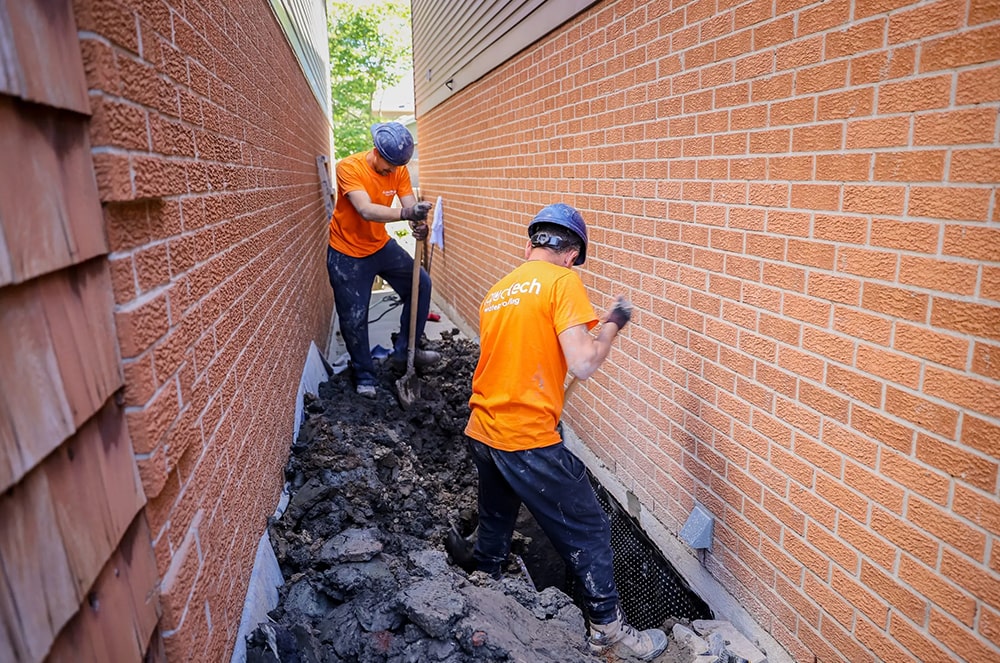Homeowners in Atlanta face a unique and persistent challenge when it comes to maintaining their property’s structural integrity: the impact of Georgia’s expansive clay soil on foundation stability. Unlike other regions where more uniform soil composition allows for straightforward foundation solutions, Atlanta’s red clay is infamous for its ability to expand when wet and shrink when dry—creating significant issues for foundations over time. When not addressed with the proper geotechnical insight, these natural soil movements can lead to uneven settling, wall cracks, sloping floors, and, ultimately, costly repairs.
The Unpredictable Behavior Of Georgia Clay Soil
The foundation problems in Atlanta are not due to poor construction or bad luck; they stem from the nature of the local soil itself. Georgia clay is highly plastic, meaning it changes volume drastically depending on moisture content. During heavy rains, the clay swells, placing upward pressure on foundations. During droughts, the same clay dries out and contracts, leaving voids beneath the foundation. This constant cycle of swelling and shrinking is what leads to differential settlement—where one part of the foundation sinks or rises more than another.
What makes this condition particularly deceptive is that the damage doesn’t appear all at once. Homeowners may first notice small cracks around windows or doors that don’t close properly. Over time, these seemingly minor issues evolve into major structural concerns.
Why Generic Foundation Approaches Fall Short?
Most standard foundation repair techniques used in other parts of the country don’t account for the reactive nature of clay-heavy soil. Generic slab jacking, concrete patches, or basic pier systems may temporarily mask symptoms but fail to address the root cause: soil movement.
These conventional methods may work well in regions with loamy or sandy soils but tend to underperform in Atlanta’s specific geological context. Without considering the expansive properties of clay, repairs can become repetitive, with the same symptoms reemerging after every season change. In essence, generic foundation repair becomes a costly band-aid rather than a long-term fix.
Geotechnical Expertise Makes The Difference
This is where local knowledge and experience become invaluable. Foundation specialists who understand Atlanta’s soil mechanics, such as the experts at ESOG, approach foundation settlement from a geotechnical engineering perspective. Their process begins with a detailed soil assessment, which helps determine not just the extent of damage but the underlying soil behavior driving it.
Unlike one-size-fits-all solutions, their systems are designed to account for the expansive and contracting properties of Georgia clay. This includes using deeper helical piers or steel push piers that reach stable strata far below the active clay layer, ensuring a secure and lasting foundation. Moreover, moisture control solutions like proper drainage systems and soil stabilization additives may be implemented as part of a comprehensive repair strategy.
Choosing such tailored services over generic methods often results in greater peace of mind and significantly reduced long-term costs. It’s not just about lifting and leveling; it’s about engineering a solution that withstands the unique pressures of Atlanta’s environment.
Warning Signs Of Foundation Settlement
While every property behaves differently, some common indicators signal potential foundation issues due to soil movement:
- Stair-step cracks in brick or masonry
- Interior drywall cracks, particularly near doors and windows
- Doors or windows that stick or no longer latch properly
- Sloping floors or cracked tile
- Gaps between walls and ceiling or floor trim
If you see any of these symptoms, especially in a house on clay-rich land, it’s imperative that you speak with reputable foundation settlement repair specialists in Atlanta. Delaying action often leads to worsened damage and higher repair costs.
Long-Term Prevention And Maintenance
While repairs are necessary for homes already experiencing issues, proactive strategies can prevent future damage. These include:
- Installing proper drainage systems to keep water away from the foundation
- Maintaining consistent soil moisture around the home to reduce dramatic fluctuations
- Using root barriers to prevent tree roots from drying out the soil under foundations
- Regular home inspections, especially following heavy rain or drought periods
Ultimately, the key lies in understanding that Atlanta clay soil foundation problems require more than generic solutions. They demand expertise rooted in local conditions and a commitment to engineering durability from the ground up.
Final Thoughts
Foundation issues in Atlanta are as much about geology as they are about engineering. Homeowners who try to address these problems with cookie-cutter methods may find themselves fighting a losing battle against nature. However, by relying on geotechnical experts who specialize in the region’s unique soil composition, long-term stability and peace of mind are achievable. If your home is showing signs of foundation distress, don’t settle for temporary fixes. Explore tailored solutions built for Georgia’s terrain by reaching out to seasoned professionals offering foundation settlement repair Atlanta services. Their specialized knowledge of local soil dynamics ensures that your home stays secure, level, and structurally sound for years to come.
